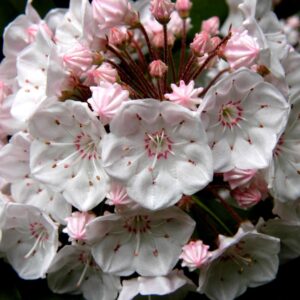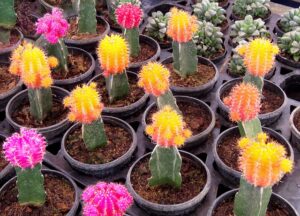 Pin
Pin Photo Courtesy of Pexels
Chemical-laden products may give instant results but often damage hair in the long run. That’s why people are shifting toward natural alternatives that are gentle and nourishing. Mother Nature has gifted us with countless herbs, oils, and seeds that deeply nourish the scalp without side effects.
The best part? These ingredients not only support growth but also soothe irritated scalps, reduce dandruff, and strengthen the roots. Using natural remedies creates a healthy foundation for long-term hair health. When hair gets the right nutrients consistently, it grows fuller and stronger.
When it comes to maintaining luscious hair, Natural Ingredients for Hair Growth are not just a trend—they’re a return to what truly works. It’s about going back to basics, where results come with patience and care, not harsh chemicals. In this guide, you’ll learn exactly which ingredients can change your hair game naturally.
Table of Contents
1. Coconut Oil – The Timeless Hair Healer
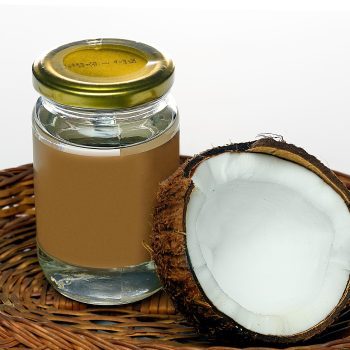 Pin
Pin Image by Manjot Singh from Pixabay
Coconut oil has been used for centuries to care for hair, and for good reason. It penetrates deeply into the hair shaft, reducing protein loss and keeping strands moisturized. Dry, brittle hair often breaks easily, but coconut oil works from the inside out to make hair more elastic and less prone to damage.
It also has antibacterial and antifungal properties, which help keep the scalp clean and free from dandruff. A healthy scalp is essential for new hair growth. Massaging your scalp with warm coconut oil improves blood circulation, helping nutrients reach your hair roots faster.
The best time to use it? Overnight. Gently massage a small amount onto your scalp and ends, cover your head, and rinse in the morning. Over time, hair feels softer, shinier, and noticeably thicker. It’s affordable, easy to find, and one of the simplest habits you can add to your hair care routine.
2. Aloe Vera – The Scalp Soother
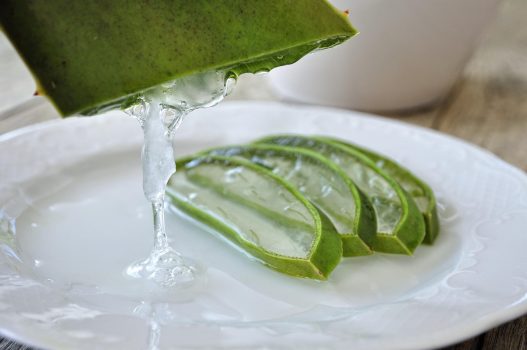 Pin
Pin Image by RosinaS from Pixabay
Aloe vera is more than just a sunburn remedy—it’s a powerful scalp treatment that encourages hair growth. Rich in vitamins A, C, and E, it helps repair dead skin cells on the scalp and unclogs hair follicles. When the scalp is free from buildup, hair has a much better chance of growing freely and healthily.
The natural enzymes in aloe vera also calm itching and reduce inflammation, especially useful if you have scalp conditions like eczema or psoriasis. It hydrates without making your scalp greasy, balancing oil production while keeping the skin cool and nourished.
To use, extract the clear gel from a fresh aloe leaf and apply it directly to your scalp. Let it sit for 30–45 minutes before rinsing with lukewarm water. Using it two to three times a week can lead to smoother, shinier hair and a healthier scalp environment overall. Aloe vera is gentle and suits all hair types, making it a versatile staple in natural hair care.
3. Onion Juice – The Growth Booster Nobody Talks About
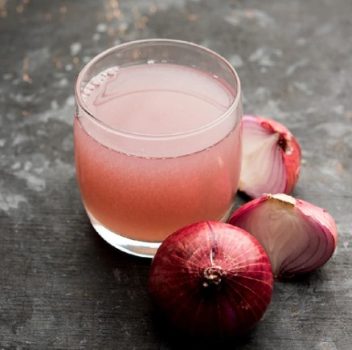 Pin
Pin Image by @kuvings_singapore / Instagram
It might smell unpleasant, but onion juice is a game-changer for hair growth. Rich in sulfur, it strengthens hair strands and promotes collagen production in the scalp. Sulfur is a mineral that plays a crucial role in forming strong bonds in hair proteins, which means less breakage and better texture.
Onion juice also increases blood flow to hair follicles. This enhanced circulation feeds your roots with the nutrients they need to grow thicker, darker, and healthier strands. Many who suffer from bald patches or thinning hair have seen visible improvements after regular use.
To use it, grate a raw onion and extract the juice. Apply it to your scalp and leave it for 30 minutes before washing with a mild shampoo. Doing this twice a week for a few months can bring noticeable changes. While the smell may be strong, the long-term benefits for your hair can be well worth it. A few drops of essential oil can help mask the scent.
4. Rosemary Oil – Nature’s Hair Revival Elixir
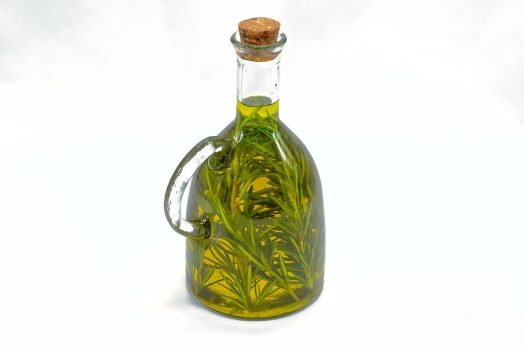 Pin
Pin Image by foto-canvas-store from Pixabay
Rosemary oil has gained massive popularity among those looking to restore thinning hair. It stimulates blood circulation in the scalp, which helps revive dormant hair follicles. Over time, this can lead to improved hair density and reduced hair fall, especially around the crown and hairline.
Its anti-inflammatory and antioxidant properties also protect the scalp from damage caused by pollution, stress, or over-styling. Unlike many synthetic hair growth solutions, rosemary oil works gently without irritating the scalp. It even helps reduce premature greying and keeps the scalp free of dandruff.
To use, dilute a few drops of rosemary essential oil with a carrier oil like coconut or castor oil. Massage it into your scalp 2–3 times a week. Leave it for at least 30 minutes before rinsing. Consistent use can bring noticeable results in as little as three months. It’s a powerful, fragrant way to support hair health naturally—no chemicals required.
5. Fenugreek Seeds – The Ancient Secret for Stronger Hair
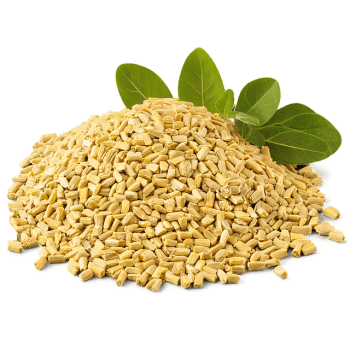 Pin
Pin Image by IMAGEMO DESIGN STUDIO from Pixabay
Fenugreek seeds, also known as methi, are a rich source of iron, protein, and nicotinic acid—nutrients that play a direct role in strengthening hair follicles and promoting growth. These tiny seeds have been used for centuries in traditional remedies, especially in Indian households, for preventing hair fall and boosting scalp health.
Soaking the seeds overnight and grinding them into a fine paste creates a natural conditioner that reduces frizz and adds shine. Fenugreek also helps treat dandruff and itchy scalp, creating a clean environment for hair to thrive. It acts as a gentle exfoliator that removes buildup without stripping moisture.
Apply the paste directly to your scalp and hair, leave it for 30–45 minutes, then rinse with a mild shampoo. For easier use, fenugreek oil or water infusion can be added to your hair routine twice a week. It’s simple, effective, and perfect for anyone looking to thicken their hair naturally using time-tested ingredients.
6. Amla – The Indian Gooseberry for Deep Nourishment
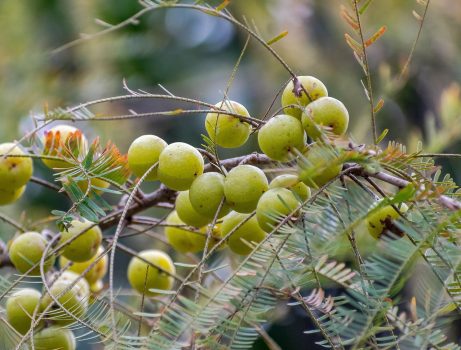 Pin
Pin Image by Rajesh Balouria from Pixabay
Amla, often called the Indian gooseberry, is a powerhouse of Vitamin C and antioxidants. These nutrients help rebuild collagen in the scalp and strengthen the roots. Stronger roots mean less hair fall and better resistance to breakage, especially for those dealing with stress or seasonal shedding.
It also balances scalp oil and keeps dandruff at bay, making it ideal for oily or irritated scalps. Amla can even delay the appearance of grey hairs by supporting pigment-producing cells. This makes it a go-to for people who want both healthier and more youthful-looking hair.
To use amla, you can massage your scalp with amla oil or apply a homemade paste made from dried amla powder and water. Let it sit for about 30 minutes before rinsing. Used weekly, amla can make hair appear fuller, shinier, and noticeably thicker over time. It’s one of nature’s best-kept secrets for total hair revival and long-term scalp care.
7. Castor Oil – The Thickening Powerhouse
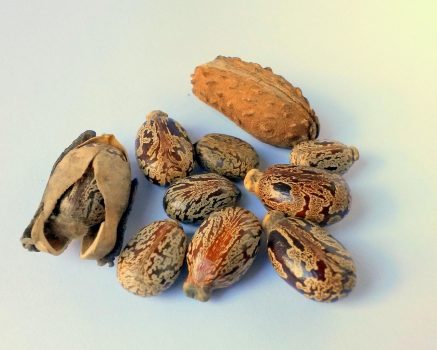 Pin
Pin Image by GOKALP ISCAN from Pixabay
Castor oil is famous for its ability to promote thicker, fuller hair. Its high concentration of ricinoleic acid helps improve blood circulation to the scalp, allowing hair follicles to absorb more nutrients. This leads to faster and denser hair growth when used consistently over time.
It also has antifungal and antibacterial properties that keep the scalp clean and free from infections. A healthy scalp is key to preventing hair thinning and promoting new growth. Castor oil also seals in moisture, making it great for people with dry or brittle hair types.
For best results, warm the castor oil slightly and massage it into your scalp once or twice a week. Due to its thick texture, it’s often mixed with lighter oils like coconut or jojoba to make it easier to apply. Leave it on for at least an hour or overnight for deep conditioning. Castor oil is simple, affordable, and one of the most effective remedies for people seeking volume naturally.
8. Hibiscus – The Flower That Feeds Your Follicles
 Pin
Pin Photo by Daniel Royer
Hibiscus isn’t just beautiful—it’s a true hair care gem. Rich in vitamins A and C, as well as amino acids, hibiscus helps nourish the scalp and stimulate the dormant follicles responsible for hair growth. Its deep-conditioning properties make hair softer, more manageable, and noticeably shinier.
One of hibiscus’s standout benefits is its ability to prevent split ends and control premature greying. It also adds natural volume and bounce to limp hair. The flower and leaves can be crushed into a paste or boiled into a tea for rinsing the scalp and strands.
To use, make a thick paste using hibiscus petals and leaves blended with water or aloe vera gel. Apply the mixture to your scalp and hair, leave it on for 30–40 minutes, and rinse thoroughly. When used weekly, hibiscus can make your hair feel renewed, look more vibrant, and grow stronger from the root. It’s one of nature’s most colorful hair elixirs with real, visible results.
9. Green Tea – The Antioxidant Shield for Hair Growth
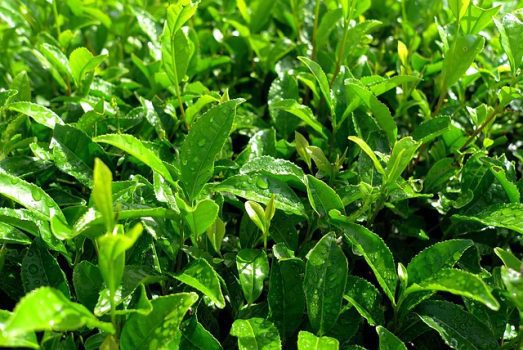 Pin
Pin Image by 피어나네 from Pixabay
Green tea is well known for its health benefits, but it also works wonders for your hair. It’s packed with antioxidants, especially epigallocatechin gallate (EGCG), which stimulates hair growth by boosting blood flow and revitalizing hair follicles. This makes it an excellent choice for those dealing with thinning or shedding hair.
It also helps regulate oil production on the scalp, which keeps pores unclogged and promotes a cleaner, healthier environment for new strands to grow. Green tea’s natural anti-inflammatory properties also soothe irritation and reduce conditions like dandruff or flakiness.
To use it, brew a strong cup of green tea, let it cool, and use it as a final rinse after shampooing. You can also mix green tea extract into your DIY hair masks or sprays. Using it 2–3 times a week can help strengthen roots, reduce breakage, and support natural hair growth. It’s a lightweight, calming, and effective solution you can easily add to your routine.
10. Neem – The Scalp Purifier for Healthier Hair Growth
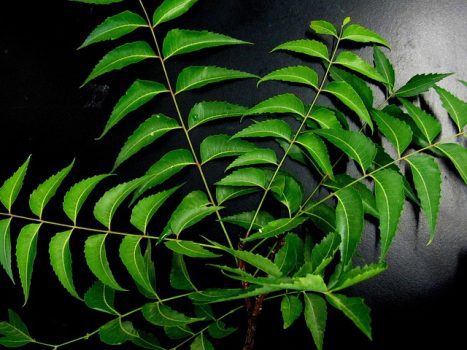 Pin
Pin Image by punnamjai from Pixabay
Neem is a powerful natural remedy for cleansing the scalp and supporting hair growth. Known for its antibacterial, antifungal, and anti-inflammatory properties, neem helps treat scalp conditions like dandruff, itching, and buildup that can block hair follicles. A clean, balanced scalp allows new hair to grow more freely and reduces excessive shedding.
It’s also rich in fatty acids and Vitamin E, which nourish and protect the hair shaft. Neem strengthens the roots and adds a natural shine to the hair. Its cooling nature soothes irritated skin, making it ideal for those with sensitive or acne-prone scalps.
To use, boil neem leaves in water, strain the mixture, and use it as a final rinse after shampooing. You can also grind the leaves into a paste and apply it to your scalp once a week. Neem oil, when mixed with a carrier oil, is another effective option. With regular use, neem helps maintain a healthy scalp environment that supports steady, natural hair growth.
Tips and Warnings for Using Natural Ingredients for Hair Growth
✅ Helpful Tips for Best Results:
- Patch Test First: Always test a small amount of any new ingredient on your skin (preferably behind the ear or on the wrist) to check for allergic reactions before applying it to your scalp.
- Be Consistent: Natural remedies work gradually. Apply them regularly (2–3 times a week) for at least 8–12 weeks to see visible results.
- Use Fresh Ingredients: Fresh aloe vera, onion juice, and hibiscus paste offer better potency than store-bought products with preservatives.
- Massage Matters: Gently massaging your scalp for 5–10 minutes with oils like coconut or rosemary boosts blood circulation and helps nutrients reach the roots.
- Follow with Mild Shampoo: After applying oil or herbal pastes, wash with a sulfate-free, mild shampoo to avoid stripping away natural oils.
⚠️ Warnings and Disclaimer:
- Not a Substitute for Medical Advice: These remedies are not a cure for medical conditions like alopecia, hormonal imbalances, or scalp infections. Consult a dermatologist if hair loss is severe or sudden.
- Allergic Reactions Possible: Ingredients like onion juice or essential oils may cause irritation or burning sensations in sensitive individuals. Always dilute essential oils and avoid contact with eyes.
- Hair Type Matters: Some ingredients (e.g., castor oil) may be too heavy for oily scalps, while others (like fenugreek) can dry out already dry hair if used too often.
- Storage Caution: Do not store homemade pastes or juices for more than 24 hours unless refrigerated. Use fresh preparations for best results and safety.
- Avoid Mixing Too Many at Once: Mixing multiple ingredients in one session can overwhelm your scalp. Stick to one or two remedies per application to gauge effectiveness.
FAQs
While results vary from person to person, rosemary oil and onion juice are often considered the most effective for fast hair growth. Rosemary oil stimulates blood flow to hair follicles, while onion juice provides sulfur that strengthens hair strands and boosts regrowth. Consistent use, at least twice a week for 2–3 months, is key to noticing faster results.
Natural ingredients can significantly reduce hair fall by strengthening roots, balancing scalp oils, and promoting a healthy scalp environment. However, permanent results depend on the underlying cause of hair loss. If hair fall is due to stress, poor diet, or hormonal issues, natural remedies help—but a full lifestyle approach is also needed.
Yes, you can mix carrier oils (like coconut or castor oil) with essential oils (like rosemary or tea tree) or even herbal pastes like fenugreek or amla. However, avoid combining too many ingredients at once. Start simple and observe how your scalp reacts before creating blends.
Most natural treatments can be used 2–3 times a week, depending on your hair type and scalp condition. Oils can be left overnight, while juices and pastes (like aloe vera or onion) should be washed off after 30–45 minutes. Avoid daily application unless the ingredient is gentle and non-oily.
Some ingredients like onion juice, castor oil, and amla have shown positive results in stimulating dormant follicles, especially when applied directly to thinning spots. While they may not completely reverse baldness, they can slow down hair loss and support regrowth when combined with scalp massage and proper nutrition.




















